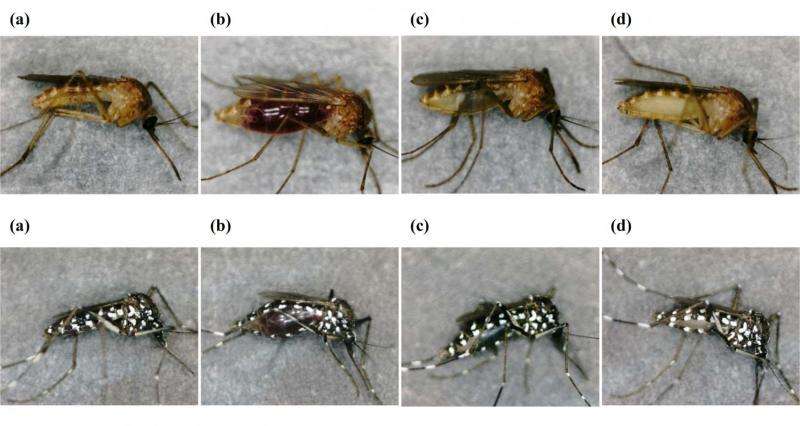Forensic scientists recover human DNA from mosquitos

Nagoya University research team shows that human blood extracted from mosquitos remains viable for DNA analysis up to two days after feeding.
Most people would agree that painful mosquito bites are an especially annoying part of summer. Except perhaps forensic scientists, who can examine human blood from a mosquito's stomach and match the DNA to determine who was bitten. This technique can help police work out who was at a crime scene and in the future, might provide evidence that can be used to convict offenders. But questions remain about how long it takes a mosquito to digest human blood and how long before the DNA becomes unrecognizable.
Now a team of forensic scientists at Nagoya University has answered these questions.
"We asked several volunteers to let mosquitos bite them", explains first author Yuuji Hiroshige. "After allowing the mosquitos to digest the blood for a certain amount of time, we extracted the human DNA and used PCR techniques to amplify the sample for quantification and genotyping."
Polymerase chain reaction, or PCR, is a standard tool in forensics for amplifying a minute amount of DNA. A single DNA fragment can be multiplied many thousands or even millions of times. The team can then use the amplified samples to find out how much DNA is left after the mosquito feeds and who it belongs to.
By examining DNA in blood digested by two different species of mosquito over a range of times after feeding, the team was able to trace back blood samples to individual volunteers, even after two days of digesting in the mosquito. After roughly three days the mosquitos completely digested the blood.
Group leader Toshimichi Yamamoto says, "Ours is the first study to systematically apply modern DNA profiling techniques to the challenging forensic analysis of mosquito blood meal. We hope this will help crime scene investigators collect reliable evidence that could be used to guide investigations and support convictions. Although we need to take some steps to improve our methods and obtain more data, with more accurate quantification methods, we might be able to estimate the time after mosquitoes' blood feeding with even greater accuracy."
More information: Yuuji Hiroshige et al. A human genotyping trial to estimate the post-feeding time from mosquito blood meals, PLOS ONE (2017). DOI: 10.1371/journal.pone.0179319
Journal information: PLoS ONE
Provided by Nagoya University


















